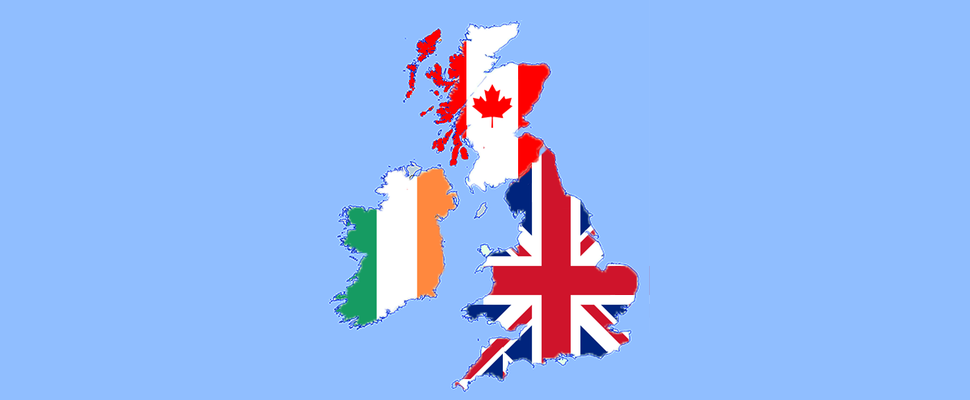The push for an independent Scotland is heating up again. After the 2016 referendum on Brexit which would effectively withdraw U.K. membership in the European Union passed; it left a sour taste in Scotland where almost all shires voted in favor of Remain.
Scottish First Minister Nicola Sturgeon is stoking talk of another Scottish referendum to become their own nation for the first time in over 300 years after the 2014 referendum failed. However, Scotland has a few options in moving forward, one being joining Canada as its 11th province.
Canada is home to the largest Scottish population outside of Britain with 4.7 million Canadians claiming Scottish ancestry. Scotland would also have significantly more political power since they would comprise 12.6 per cent of the total Canadian population compared to only 8 per cent in Britain. It’s also increasingly becoming cheaper to travel from the British Isles to North America with several budget airlines expanding their overseas operations like Canadian airline West Jet.
“All Canadian provinces have more power, more independence, and autonomy than Scotland has right now,” Ken McGoogan, the author who first proposed a union between Canada and Scotland told CTV. “We know how to accommodate difference and we could easily accommodate the Scots.”
However, there are more tangible reasons that would be of benefit to Scots.
A petition that already has 188,000 signatures could soon be brought forward to the British Parliament that would allow for open movement of citizens between the U.K., Canada, New Zealand and Australia. All of which are members of the Commonwealth, share a common language and similar colonial history. It would also provide a post-Brexit solution for trade and labor in the U.K.
Although Scotland would leave the U.K., it would still benefit from this bill because the way in which Scottish citizens work, travel and trade in England will be virtually unchanged. Scottish citizens would also have universal health care in a system much similar to the NHS as well as all other benefits of Canada’s social safety net and its progressive constitution and Bill of Rights.
Of course, Scotland would be no ordinary province being thousands of miles away from mainland Canada. That’s why similar to Quebec, Scotland would have special designation within Canada, where they would have just as much autonomy in governing their own affairs, if not more than they currently hold within the U.K.
Opponents of the measure point to the ever-strained relationship between Anglo and French Canadians, where Quebec has sought numerous cracks at independence, the latest in 2015 where nationalists won by a slim margin. The push for an independent Quebec will never go away with talks of another referendum in 2018, and the prospects of Scotland seeking separation from Canada in the future (should they join) is likely if issues concerning equalization arise.
Canada’s greatest benefit to Scotland, however, is NAFTA. Scotland would have access to the entire U.S. market where its citizen’s buying power is significantly higher than in the E.U. But this doesn’t necessarily mean Scotland must choose between the two as they could also seek to rejoin the E.U. after independence.
Canada’s primary benefit of Scottish independence and joining Confederation is that if Scotland applies for E.U. membership afterward, it would provide a backdoor for Canada into the E.U. market. Canada is already wary of President Donald Trump’s aggressive talk on trade with the Great White North, that’s why a plan B to alleviate dependency on the neighboring superpower is in Prime Minister Justin Trudeau’s best interest.
Scotland has long felt alienated by being in union with the country in which they were colonized by and yearn for the freedom to determine their own destiny. Ultimately, Canada and Scotland would find prosperity and self-determination in courting this mutually beneficial and historic partnership.
Follow Allume on Facebook here.


